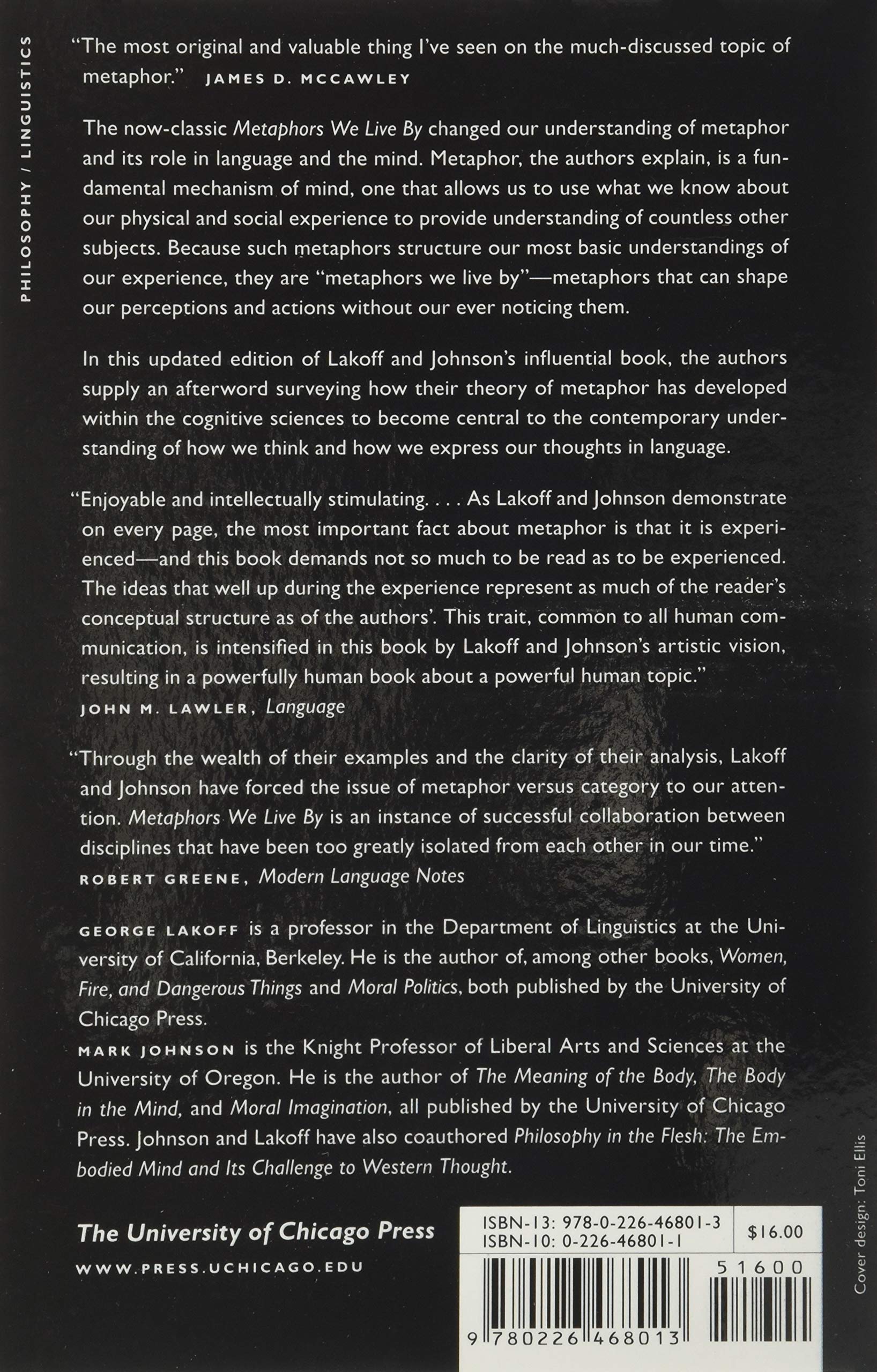


to spend/waste/save/lose/invest time, or the sentences "That flat tire cost me an hour" and "He's living on borrowed time". Contemporary English (as well as other languages) has many expressions corresponding to the metaphorical concept TIME IS MONEY: e.g. Let's take a familiar example given by Lakoff and Johnson in the second chapter. Metaphor involves more than just language. The opening chapters explain that metaphor is not only pervasive in everyday life, but that the human conceptual system is metaphorical in nature. For the authors, "the essence of metaphor is understanding and experiencing one kind of thing in terms of another" (p. The book is cut up into very short chapters, and the beginnings of most chapters sum up the preceding argumentation. In their journey through metaphor, the authors take care to provide many guideposts and examples, leading us gently towards the philosophical discussion at the end. The prose is refreshingly clear, even entertaining at times. The first thing the reader will notice about Metaphors We Live By is its absence of undefined terms and technical jargon. This review will adopt the perspective of the foreign language teacher and emphasize the importance of metaphor in the language learning process. 63) Although this book is no longer recent and has been often discussed by philosophers and linguists, it probably has not been read by many members of our profession. The ability to use language metaphorically is not a skill of advanced learners, but something that everyone needs from an early stage" (p. In their recent book Metaphors We Live By, Lakoff and Johnson point out that at a profound philosophical level, all language is metaphorical and, more interestingly from our point of view, much more everyday language is metaphorical than is normally recognised. In discussing the teaching of vocabulary in the foreign-language classroom, Lewis states: "Metaphor is often seen as a literary device rather than part of everyday language. members who attended the XXème Congrès on "Lexiques et Dictionnaires", held in May 1990, may remember Michael Lewis referring to this book during his talk entitled "Which Is More Important Vocabulary or Grammar" (see Cahiers de 1'A.P.LI.U.T. Reviewed by Andy Arleo, IUT de Saint-Nazaire.Ī.P.L.I.U.T. Chicago: University of Chicago Press, 1980.


 0 kommentar(er)
0 kommentar(er)
